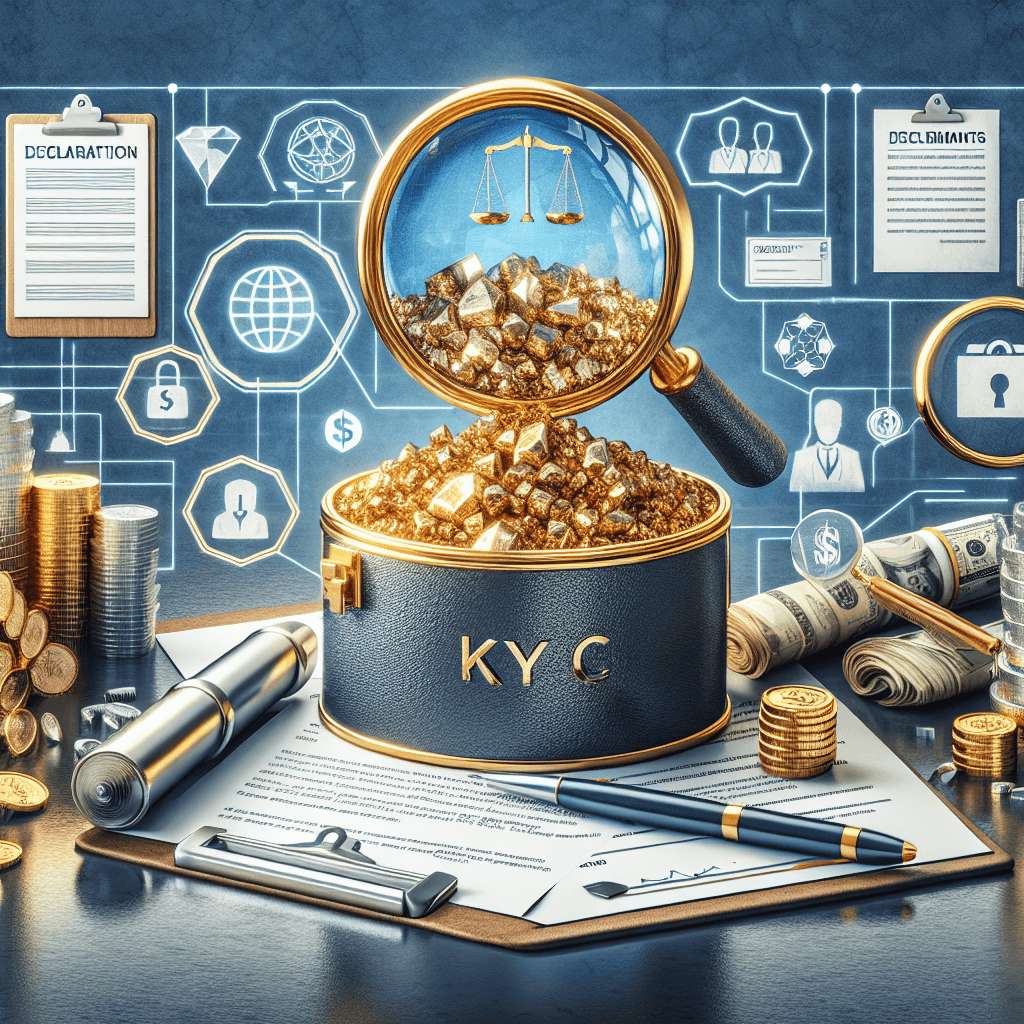Best Kyc Practices For Highvalue Goods Dealers

Click to view full size
Best KYC Practices for High-Value Goods Dealers
In the world of high-value goods, effective Know Your Customer (KYC) practices are essential not only to comply with regulations but also to foster trust and mitigate risks. Engaging in thorough KYC can help ensure that your transactions are secure, legitimate, and aligned with best practices. In this post, I’ll share the best KYC practices tailored specifically for high-value goods dealers, helping you enhance security and maintain compliance.
Understanding KYC in the Context of High-Value Goods
KYC refers to the processes and procedures that businesses implement to verify the identity of their clients. In the high-value goods sector—where transactions often concern luxury items, art, and collectibles—KYC becomes even more crucial. This practice helps mitigate risks associated with fraud, money laundering, and other illegal activities.
Key Benefits of Implementing Robust KYC Practices:
- Enhanced Security: Reduces the risk of fraud and theft.
- Regulatory Compliance: Meets local and international legal standards.
- Customer Trust: Builds confidence with clients and partners.
- Data Integrity: Maintains accurate records and reduces errors.
Top KYC Practices for High-Value Goods Dealers
Thorough Customer Identification Procedures
Start by collecting comprehensive information from your customers. This should include:
- Full name
- Date of birth
- Address
- Identification documents (e.g., passports, driver’s licenses)
- Source of wealth
Use reliable verification tools to confirm the authenticity of these documents. According to a study by the Financial Action Task Force (FATF), businesses that conduct rigorous identity checks are much more likely to detect fraudulent activities.
Risk Assessment and Profiling
Categorize your customers based on the risk they pose. Consider:
- The country of origin: High-risk jurisdictions may require enhanced due diligence.
- Transaction sizes: Larger transactions often pose greater risks.
- Customer history: Regular customers with a clean history may require a less stringent approach.
Utilize this risk assessment to tailor your KYC processes for different client segments.
Continuous Monitoring and Updating
KYC isn’t a one-and-done process. Implement continuous monitoring methodologies:
- Regularly update customer records.
- Monitor transactions for suspicious activity.
- Employ automated systems to flag unusual patterns.
According to the U.S. Department of Treasury, continuously monitoring transactions can significantly reduce potential risks.
Advanced Due Diligence for High-Value Transactions
For transactions involving large sums or rare items, consider conducting enhanced due diligence (EDD):
- Seek additional documentation about the source of funds.
- Engage in interviews with clients when necessary.
- Collaborate with third-party experts for valuable insights.
EDD can often make the difference between identifying a genuine buyer and uncovering a fraudulent one.
Implement Training Programs for Employees
Your employees are your first line of defense. Regularly train them on KYC regulations, potential scams, and transaction validation techniques. This may include:
- Workshops on the latest fraud trends in high-value goods.
- Role-playing scenarios to recognize suspicious activities.
- Updates on regulatory changes to KYC processes.
A well-informed team can dramatically reduce risks associated with dubious transactions.
Technology and Tools to Aid KYC
Leverage technology to improve your KYC processes. Here are a few types of tools that can be beneficial:
- Identity Verification Software: Solutions like Jumio and IdentityMind can help in verifying identities from documents.
- Fraud Detection Tools: Platforms like FICO and SAS analyze transactions and flag anomalies.
- Customer Relationship Management (CRM) Software: CRMs help maintain and organize customer data, making it easier to keep records up-to-date.
Using these technologies can help streamline compliance and improve efficiency.
Summary
Implementing best KYC practices is essential for high-value goods dealers. By thoroughly identifying customers, conducting risk assessments, monitoring transactions, performing due diligence, investing in employee training, and utilizing advanced technology, you can safeguard your business against risks while complying with necessary regulations.
Final Thoughts
Effective KYC practices not only protect your business but also enhance your reputation within the high-value goods marketplace. Don't underestimate the importance of a solid KYC strategy—it's a step toward securing trust and success in your dealings.
For more detailed guidelines about KYC compliance, I recommend visiting resources like the FATF or the U.S. Department of Treasury, which offer in-depth information about best practices and regulatory expectations.
Related Articles
- Fica Compliance Requirements For Independent Financial Advisors In South Africa
- Kyc Procedures For Financial Service Providers In South Africa
- Fica Compliance Guidelines For Legal Practitioners
- Understanding Fica Obligations For Motor Vehicle Dealerships
- Kyc Solutions For Highvalue Goods Retailers
- Fica Compliance Checklist For Property Practitioners
- How To Achieve Fica Compliance For South African Businesses
- Kyc Best Practices For Estate Agents In South Africa
- Fica Compliance Training For Financial Advisors In South Africa
- Fica Compliance For Real Estate Professionals In South Africa
- Role Of Kyc In Fica Compliance For Financial Service Providers
- Fica Compliance Audits For Legal Firms In South Africa
- Fica Compliance Strategies For Car Dealers
- Implementing Kyc Measures In Highvalue Goods Transactions
- Fica Compliance Documents Required For Estate Agents
- Effective Kyc Policies For South African Businesses
- Fica Compliance Software Solutions For Financial Advisors
- Understanding The Fica Compliance Framework For Motor Vehicle Dealers
- Kyc Challenges Faced By Property Practitioners In South Africa
- Fica Compliance Resources For Independent Financial Advisors
- How To Streamline Fica Compliance For Legal Practitioners
- Importance Of Kyc In Fica Compliance For Fsps
- Fica Compliance Workshops For Motor Vehicle Dealerships